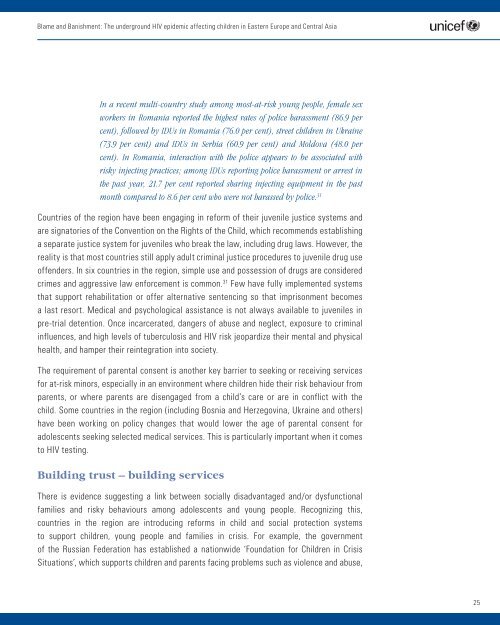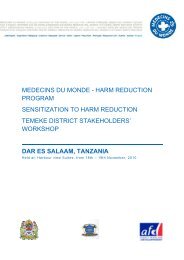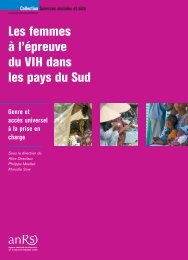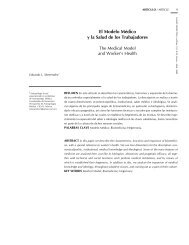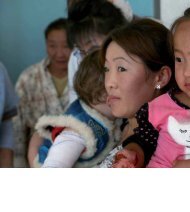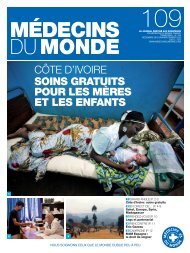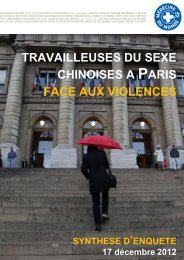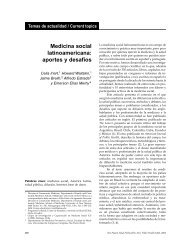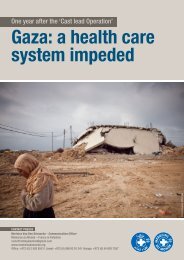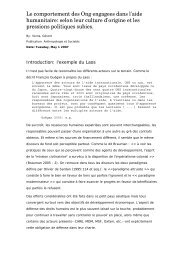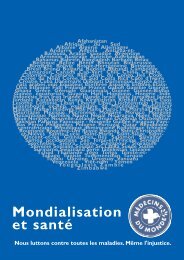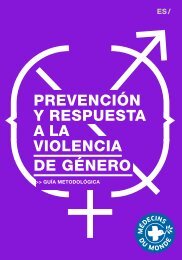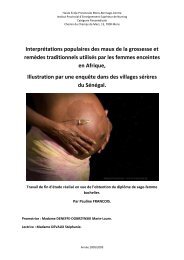Blame & Banishment - Médecins du Monde
Blame & Banishment - Médecins du Monde
Blame & Banishment - Médecins du Monde
Create successful ePaper yourself
Turn your PDF publications into a flip-book with our unique Google optimized e-Paper software.
<strong>Blame</strong> and <strong>Banishment</strong>: The underground HIV epidemic affecting children in Eastern Europe and Central Asia<br />
In a recent multi-country study among most-at-risk young people, female sex<br />
workers in Romania reported the highest rates of police harassment (86.9 per<br />
cent), followed by IDUs in Romania (76.0 per cent), street children in Ukraine<br />
(73.9 per cent) and IDUs in Serbia (60.9 per cent) and Moldova (48.0 per<br />
cent). In Romania, interaction with the police appears to be associated with<br />
risky injecting practices; among IDUs reporting police harassment or arrest in<br />
the past year, 21.7 per cent reported sharing injecting equipment in the past<br />
month compared to 8.6 per cent who were not harassed by police. 31<br />
Countries of the region have been engaging in reform of their juvenile justice systems and<br />
are signatories of the Convention on the Rights of the Child, which recommends establishing<br />
a separate justice system for juveniles who break the law, including drug laws. However, the<br />
reality is that most countries still apply a<strong>du</strong>lt criminal justice proce<strong>du</strong>res to juvenile drug use<br />
offenders. In six countries in the region, simple use and possession of drugs are considered<br />
crimes and aggressive law enforcement is common. 31 Few have fully implemented systems<br />
that support rehabilitation or offer alternative sentencing so that imprisonment becomes<br />
a last resort. Medical and psychological assistance is not always available to juveniles in<br />
pre-trial detention. Once incarcerated, dangers of abuse and neglect, exposure to criminal<br />
influences, and high levels of tuberculosis and HIV risk jeopardize their mental and physical<br />
health, and hamper their reintegration into society.<br />
The requirement of parental consent is another key barrier to seeking or receiving services<br />
for at-risk minors, especially in an environment where children hide their risk behaviour from<br />
parents, or where parents are disengaged from a child’s care or are in conflict with the<br />
child. Some countries in the region (including Bosnia and Herzegovina, Ukraine and others)<br />
have been working on policy changes that would lower the age of parental consent for<br />
adolescents seeking selected medical services. This is particularly important when it comes<br />
to HIV testing.<br />
Building trust – building services<br />
There is evidence suggesting a link between socially disadvantaged and/or dysfunctional<br />
families and risky behaviours among adolescents and young people. Recognizing this,<br />
countries in the region are intro<strong>du</strong>cing reforms in child and social protection systems<br />
to support children, young people and families in crisis. For example, the government<br />
of the Russian Federation has established a nationwide ‘Foundation for Children in Crisis<br />
Situations’, which supports children and parents facing problems such as violence and abuse,<br />
25


